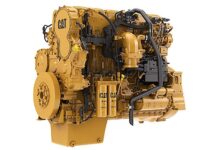
The Role of Thread Taps in Modern Automotive Manufacturing
Precision, consistency, and performance are essential in the daily manufacturing of automobiles. Thread taps are essential for production accuracy. They make internal threads, which are necessary for fastening and assembly operations. All parts have to be compatible to make vehicles operate efficiently. Taps will ensure that there is a proper alignment of bolts, screws, and fittings, preventing failures. Threading quality is directly related to safety and performance levels in contemporary plants. Awareness of thread tap applications highlights their relevance in the modern automotive manufacturing world.
Table of Contents
Importance of Precision Threading
Exact threading guarantees that each vehicle part is correctly attached to the vehicle. All the threaded holes should be to precise specifications to be strong. The slightest mistake may affect the part positioning and assembly stability. Thread taps provide consistent thread geometry in thousands of parts made. This accuracy ensures that all bolts or screws are an absolute fit. Consistency is what manufacturers use to achieve the ease of operation and reliable cars. Accurate threading lowers the vibration, wear, and mechanical stress during use.
Use of Pipe Taps in Systems
Vehicles have fluid and exhaust systems that require threaded pipe fittings. In this case, pipe taps are used by manufacturers to form internal closed threads. These threads ensure that fuel, oil, and coolant lines are leak-free. Adequate threading ensures that there is no loss of pressure and that performance is not compromised in the process. Accuracy in threading pipes ensures reliability and efficiency in the system over a long period. Piping taps are resistant to high temperature and corrosion. They rely on them to provide secure, fluid-tight connections whenever assembling the vehicles.
Automation and CNC Integration
The world today is increasingly dominated by automation in the automotive sector’s production. The threading performed by CNC machines is precise and repeatable. Automated tapping enables a high-volume production line of components to operate at a very fast and consistent pace. Errors caused by variations in threading with the help of a human are completely removed by computer control. Speed feed digital synchronization improves accuracy in each pass. Integration minimizes downtime and enhances performance in multi-shift production processes on an international level. Forced by automation and the expertise of the programmer, the quality of threading is outstanding at scale.
Durability and Tool Life
Durability is a necessity in the production of high-performance automotive parts daily. Thread taps should be able to withstand large workloads without compromising accuracy or sharpness. Coatings such as titanium nitride are highly effective in enhancing heat and friction resistance. Appropriate lubrication also enhances the lifespan of the tools used and minimizes the maintenance requirements. Regular check-ups consistently prevent wear-related defects in high-speed production cycles. The manufacturers would replace the tap even before the performance could diminish during the machining process. Long-term tools enhance productivity and reduce the operational cost in production lines.
Material Adaptability in Manufacturing
Materials used in different parts of the vehicle vary in hardness and properties. Aluminum, steel, and composite alloys need special tapping solutions in this regard. Thread taps should be suitable for various cutting conditions and material responses. Detailed designs reduce the torque resistance, and the evacuation of the chips is not interrupted. Distortion of threads in lightweight or rough metals is avoided by using proper geometries. A multi-purpose tap choice encourages flexibility in manufacturing to accommodate different automotive material trends. Adaptability ensures the same quality of threading across all vehicles, regardless of their complexity.
Role in Safety and Reliability
The threaded parts are essential to the functionality and safety of vehicles. There are engine blocks, transmissions, and brake systems under safe threaded connections. The presence of a single faulty thread may lead to serious threats of mechanical failures. Thread taps help each connection to resist heat, vibration, and pressure. Threading is controlled for quality, eliminating the risk of loosening, leaking, or misalignment during operation. Manufacturers can use inspection equipment to verify that all threaded holes are compliant. Threading manufactures vehicles that meet global standards for reliability and safety.
Conclusion
In conclusion, thread taps will continue to be necessary in automotive manufacturing due to the precision and durability requirements they meet. They help ensure the safety, strength, and efficiency of complex assembly activities. Threading processes worldwide are still influenced by automation, flexibility, and innovation. Accuracy in threading ensures that vehicles operate effectively in adverse road conditions. Pipe threading ensures leak-free fluid systems, maintaining engine integrity. The development of tap technology sustains safer and quicker car production. The thread taps are still used today as the foundation of modern industrial precision engineering.








